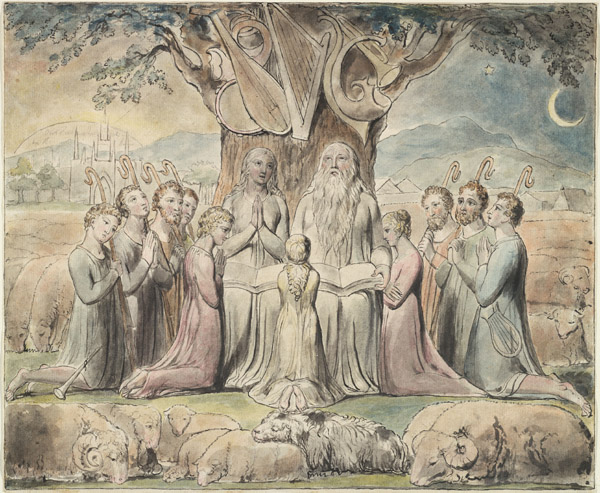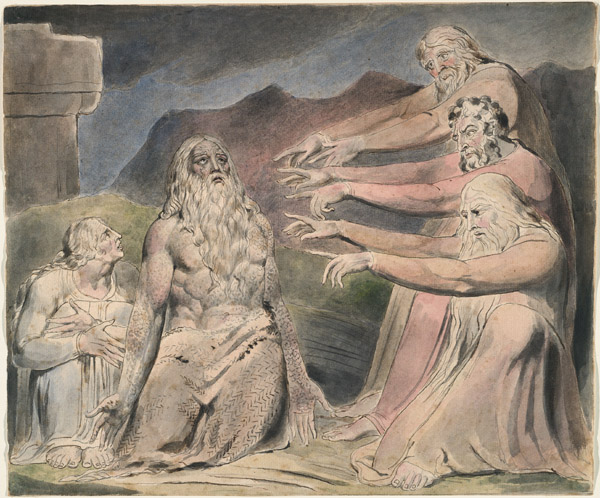I'm currently reading the poet and critic Kathleen Raine's great work on William Blake and Job. Blake was a poet and painter/engraver from the end of the 18th and early 19th century. Her book is on Blake's illustrations to the Old Testament book The Book of Job. Blake, like most western artists until relatively recently, drew inspiration from the Bible. This was seen as normal, and was sometimes even unconscious, so ingrained was Christianity in the collective mind and spirit, the "DNA" of even the most modest person socially and economically. So it is impossible to understand the West's artistic heritage on the deepest levels (often, even on the most basic levels) without a knowledge and appreciation of biblical text, particularly in the form of the stories, because the Judeo-Christian scriptures embody meaning essentially as story, "mythos". The meaning unfolds largely in narrative form. This is what is meant by "myth", which is not some invention to be opposed to "real historical fact". In any case, the deepest levels of meaning revealed to us when we hear a story are not on the historical level. They disclose themselves to us in the present encounter with the text, our experience of the text, as it were.
The Book of Job is the story of a wealthy and pious man who falls prey to a series of terrible events depriving him of all he had: family, material goods and pĥysical health. It is an archetypal story of Man's suffering, and transcending this suffering, thus prefiguring the Christ story itself. The Bible is made up of patterns of story in this way.
To be ignorant of these narratives (the Creation Myth, the Fall of Man, Noah and the Flood, exodus and exile in Egypt, Samson and Delilah, and the Christ narrative and the narratives within this narrative in the form of Jesus's parables, the list is endless) is to be alienated from one's own culture (and spiritual foundations, if one is open to such a thing as a spiritual nature). This on one level is nothing to do with "belief". We might begin more easily with "meaning". It is more than useful for example to have a Biblical knowledge when reading or watching Shakespeare. This takes its form mainly symbolically, including symbol in movement, as unfolding dramatic narrative. Even in King Lear, a play which takes place in pagan Britain, the blueprint is largely Christian.
Click below to access examples of Blake's illustrations (Job surrounded by his family at the beginning, Job suffering scorn, Job's final blessings), and the extract from Raine's work:

"Thus did Job continually..." (Plate 1)

"The Just Upright Man is laughed to scorn..." (Plate 10)

"There were not found Women fair as the Daughters of Job in all the Land & their Father gave them Inheritance among their Brethren" (Plate 20)
In this short extract from her book Kathleen Raine expresses this reality of a shared language, a unity of culture, which she experienced personally in her younger years. The fragmentation of our culture and the disappearance of this unity built up through common stories is nothing short of catastrophic.

No comments:
Post a Comment